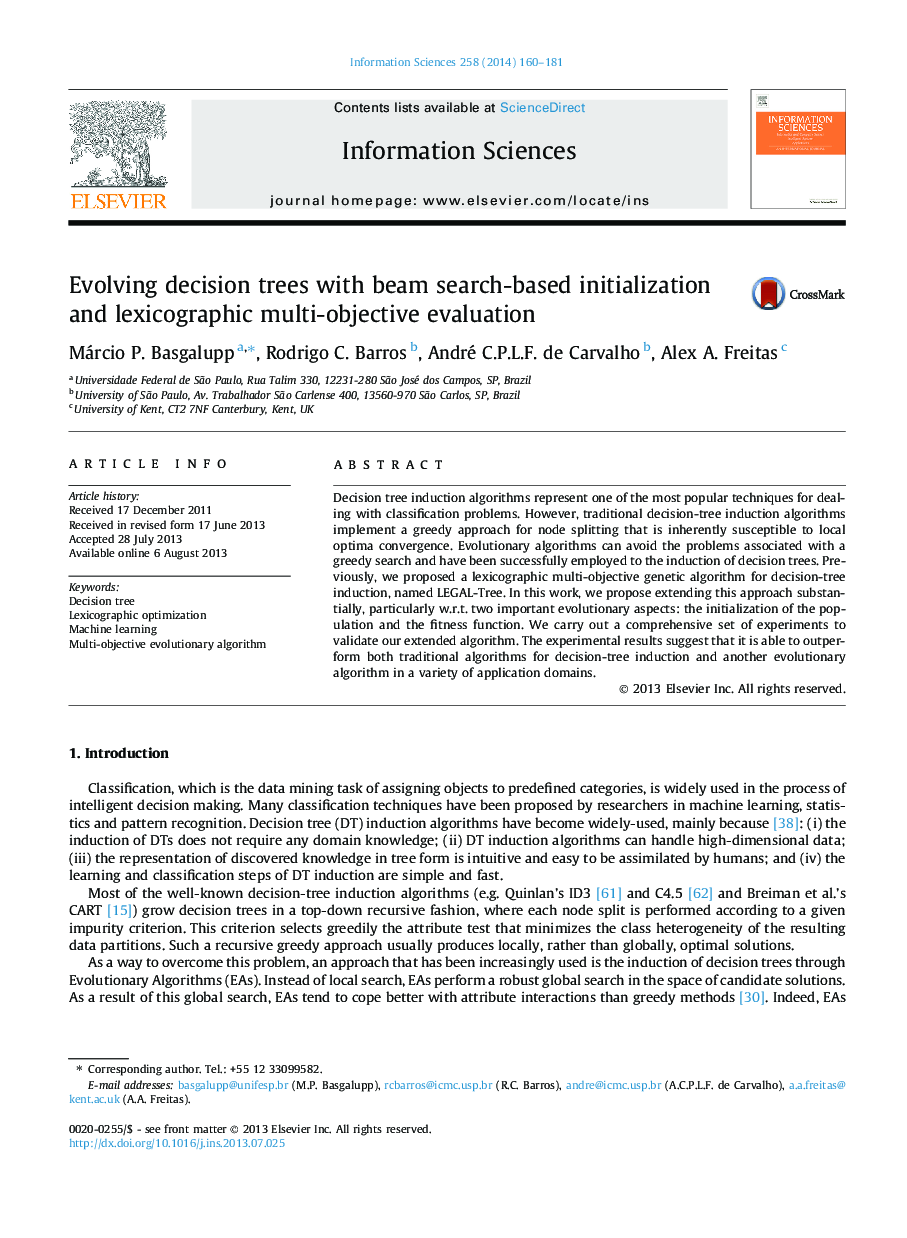| Article ID | Journal | Published Year | Pages | File Type |
|---|---|---|---|---|
| 391749 | Information Sciences | 2014 | 22 Pages |
Decision tree induction algorithms represent one of the most popular techniques for dealing with classification problems. However, traditional decision-tree induction algorithms implement a greedy approach for node splitting that is inherently susceptible to local optima convergence. Evolutionary algorithms can avoid the problems associated with a greedy search and have been successfully employed to the induction of decision trees. Previously, we proposed a lexicographic multi-objective genetic algorithm for decision-tree induction, named LEGAL-Tree. In this work, we propose extending this approach substantially, particularly w.r.t. two important evolutionary aspects: the initialization of the population and the fitness function. We carry out a comprehensive set of experiments to validate our extended algorithm. The experimental results suggest that it is able to outperform both traditional algorithms for decision-tree induction and another evolutionary algorithm in a variety of application domains.
